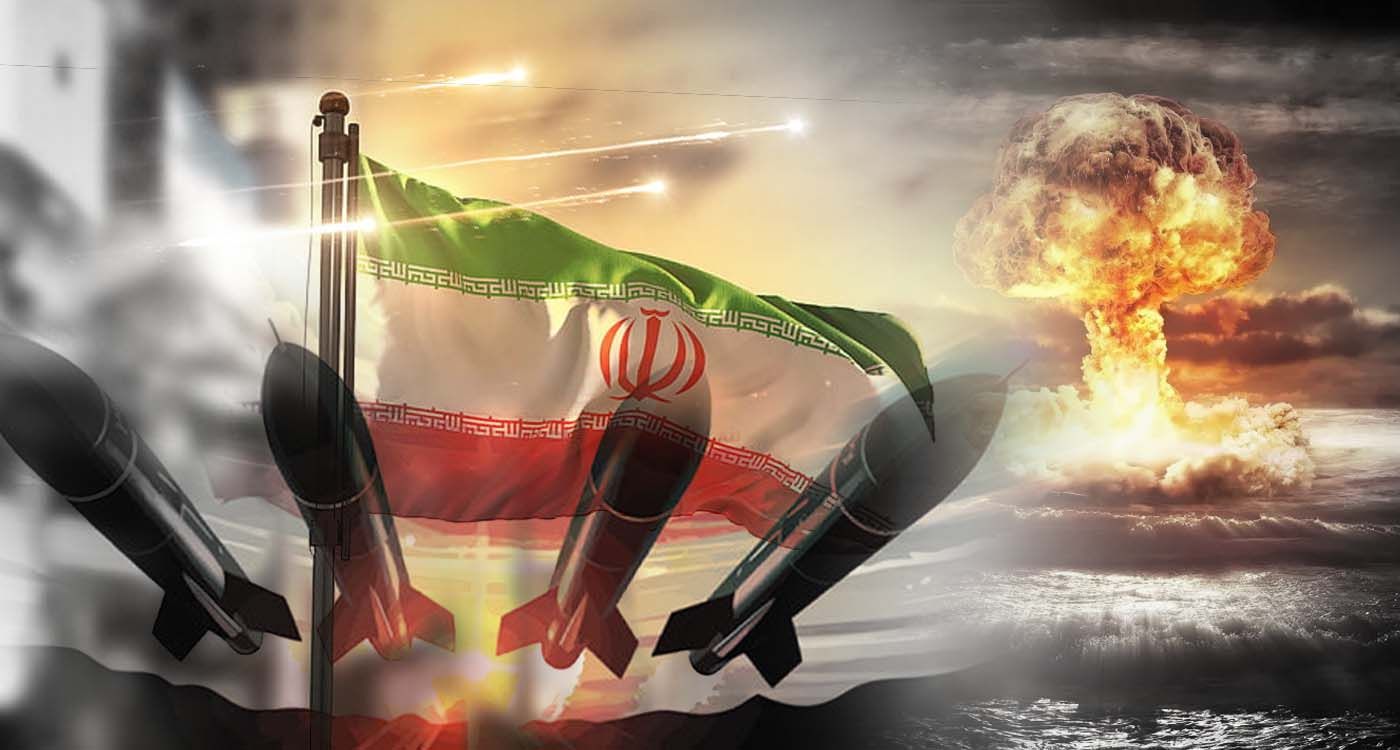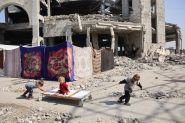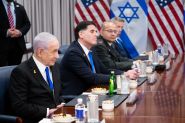- Home
- Middle East
- Iran’s Nuclear Defiance: Diplomacy on Hold, Escalation on Standby

©This is Beirut
By every measure that counts, Iran is once again daring the West to call its bluff. Less than three months after US and Israeli airstrikes tore into its nuclear facilities, Tehran has chosen defiance over accountability—expelling inspectors, hiding its enriched uranium stockpile and openly daring the international community to stop it. Europe has given Iran 30 days to restore transparency or face the snapback of US sanctions. The clock is ticking, and Tehran knows it.
This is no longer a technical dispute over centrifuges or inspection protocols. It is a high-stakes confrontation between a regime clinging to power through deceit and aggression and a Western alliance that cannot afford to look weak.
Western intelligence is clear: the June strikes on Natanz, Fordow and Isfahan set Iran back, but not nearly enough. Tehran lost critical infrastructure, yet the setback is measured in months, not years. Instead of reassessing, the regime hardened its defiance—cutting off cooperation with the IAEA and issuing threats through its proxies.
Iran has presented Washington with a binary choice: either accept its cheating or prepare for escalation. The United States cannot accept the first option.
For European capitals, the dilemma is familiar and uncomfortable. Years of failed diplomacy have proven that Tehran treats negotiations as stalling tactics. Yet, many in Europe still fear sanctions will push Iran deeper into Beijing and Moscow’s orbit.
Washington, by contrast, has leverage. President Trump has shown willingness to use pressure—military, economic and political—to put Iran on the defensive. The Pentagon may counsel caution, but the June strikes proved one undeniable fact: when America acts decisively, Iran retreats.
Make no mistake: the military option remains alive. Iran’s nuclear sites are destroyed, according to the US administration. Should Tehran continue enrichment or bar inspectors, US and Israeli forces are prepared to strike again. The first wave rattled oil markets and drew grumbling from Europe and the Gulf—but it also reminded Tehran of its vulnerability.
Airstrikes are not cost-free, but neither is appeasement. If the price of deterrence is volatility in oil markets, it is far cheaper than allowing the world’s leading state sponsor of terrorism to cross the nuclear threshold.
Unlike Israel, where bomb shelters and civil defense drills are part of daily life, Iran has made no visible effort to protect its people. There are no shelters, no evacuation plans and no preparation for war. Instead, Tehran buries its nuclear facilities deep in the mountains while leaving its citizens exposed. The lesson is clear: the regime’s priority is the survival of its nuclear program and command centers, not the survival of Iranians.
This is the same playbook Bashar al-Assad used in Syria—protect the regime, sacrifice the people.
Iran’s defiance cannot be separated from Hezbollah’s posture in Lebanon. The militia has avoided full engagement in Iran’s confrontation with Israel, but not out of moderation. Its arsenal is depleted, its supply lines are strained and its political credibility in Lebanon is collapsing. Yet, even weakened, Hezbollah remains Iran’s most valuable pawn—ready to be activated if Israel strikes again.
The choreography is telling. When Ali Larijani visited Beirut this summer, Iran’s tone was conciliatory, and Hezbollah hinted at limited dialogue with the Lebanese state. Within days, the mask dropped: Hezbollah declared its arsenal non-negotiable. The same sequence was repeated after Larijani’s visit to Iraq and Lebanon. Diplomatic niceties abroad, defiance at home.
It is as if Tehran has instructed Hezbollah to wait on the sidelines, conserving what remains of its arsenal to be used as a last-ditch shield should Israel return to Iran’s skies.
Iran is not at a crossroads, it has already made its choice. By expelling inspectors and escalating rhetoric, Tehran has doubled down on defiance. Airstrikes cannot erase knowledge, but they can destroy facilities. Sanctions cannot collapse the regime overnight, but they can suffocate its economy. What neither diplomacy nor leniency can do is change the nature of a regime built on deception, violence and survival at any cost.
The next 30 days will test the West’s resolve. Either the June strikes were a one-time warning, or they were the opening salvo of a campaign that ends with Iran forced back into compliance. Hezbollah’s bluster in Lebanon is a reminder: Iran is betting that the West will blink first. Washington must prove it wrong.
Read more




Comments